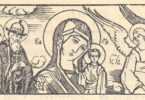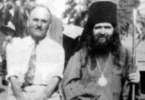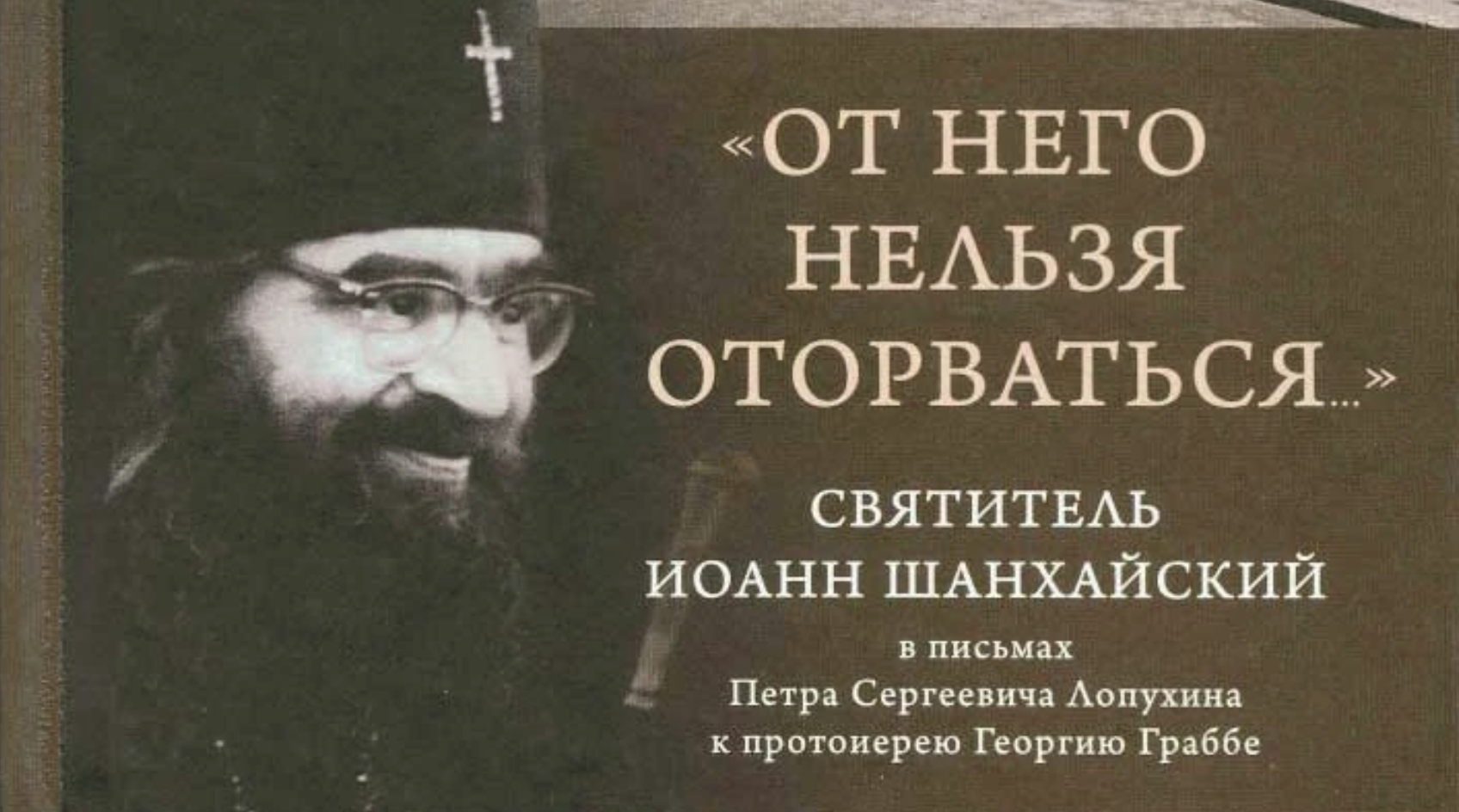Bishop Victor-Vasile (Leu) was born in 1903 in the village of Oancea, in Galatzi County, Romania. He was named Vasile in Holy Baptism. His father was a priest, later to become Bishop Grigorie (Leu, 1881-1949) of Husi. During World War II, the future Bishop Victor-Vasile volunteered to serve in the Mihai Vitezul Regiment VI, where he was wounded. He later fought with the XIVth Infantry Division on the Cotul Donului front. For his military service, he was awarded the Military War Order of Michael the Brave, the National Cross, ‘Faithful Service,’ and the ‘Crucea de Fier’ (Iron Cross). His wife was killed during the war in bombings. After Vasile finished the Seminary and Theological School, he was ordained a deacon and served at the Cathedral of the Diocese of Roman, ordained a priest, and served as priest at the Saint Spiridon Church in Iasi, and a confessor at the Colentina Hospital Corps and the Gendarmerie in Bucharest. He also served at the Jianu parish in Bucharest. In 1947, he served for a short time as an Adviser at the Department of Religious Affairs.
In 1948, the status of the Romanian Orthodox Church began to worsen under the new communist regime in Romania. The government was planning to launch severe persecutions of the Romanian Church. The Patriarchate of Romania was ordered to by the Soviets to place all of its parishes abroad under the jurisdiction of the Moscow Patriarchate. Bishops Grigorie (Leu) of Husi and Chesarie (Cezar Paunescu, 1888-1975) of Tomis were part of a network of anti-communist clergy, and wanted to send spokesmen to the Romanians in Western Europe to warn them of the dangers coming. The priests Vasile Leu and Florian Galdau were sent to Western Europe by Bishops Grigorie and Chesarie. After being arrested by and escaping from Tito’s secret police in Yugoslavia, they finally made their way to Salzburg, Austria. They met with a representative of the World Council of Churches, who put them in touch with representatives of Metropolitan Visarion’s Diocese. Metropolitan Visarion (Puiu, 1879-1964) was already in Western Europe, evading a death sentence against him by the Romanian People’s Tribunal, and had instituted the Romanian Orthodox Episcopate of Western Europe. He was ill, thought to be in serious condition, in the hospital in Switzerland. As a consequence, a meeting of representatives of the Romanian Orthodox Episcopate of Western Europe in Salzburg, Austria with the priests Vasile Leu and Florian Galdau, Father Vasile Leu was elected Bishop of the Diocese. The WCC representative and three Allied Powers (undoubtedly the USA, Great Britain, and France) recognized the election of Fr. Vasile Leu, and he was issued a passport to be able to travel freely for his duties.
Representatives were sent to Munich, Germany, to discuss the possibility that Hierarchs of the Russian Church Abroad would consecrate Fr. Vasile Leu to the Episcopate. This was arranged, and in Dec 1949, Fr. Vasile Leu was tonsured a monk with the name Vasile-Victor, and consecrated to the Episcopate in Munich, Germany in the Cathedral of the Russian Church Abroad. The consecration was presided over by Metropolitan Seraphim (Albert Lade, 1883-1950), and he concelebrated with Archbishop Stefan (Simeon Iosifovich Sevbo, 1872-1965) of Vienna and Austria. Romanian sources claim that a third Hierarch, Bishop Philip (Ivan Alexeyevich von Gardner, 1898-1984) took part in this consecration, but that would have been impossible as Bishop Philip voluntarily gave up his Episcopate in 1945 (in a little seen service, and one requiring a great deal of humility, Bishop Philip stood in the church and was divested of all the signs of his episcopal rank. He went on to become an authority on Russian Church Music, teaching at Universities in Germany, with many books on the subject to his credit. He is more widely known as Johann von Gardner). The Romanian sources could be mistaken, or simply incorrect. Possibly another Bishop could have participated and somehow the name of Bishop Philip was incorrectly noted, or only Metropolitan Seraphim and Archbishop Stefan performed the service of consecration. It makes little or no difference, as only two bishops are required to perform an episcopal consecration-whether or not a third bishop participated would have no effect on the status of Bishop Vasile-Victor (Leu) as a Hierarch).
In 1949 he visited King Michael and confessed Queen Ana in Switzerland. He travelled to England where he was received officially by both the Foreign Ministry and the Archbishop of London of the Church of England. He also made his first religious broadcasts on BBC at this time.
In 1950, he met with the former King Carol II of Romania, and travelled to Spain, where he was received by the Spanish Dictator, Francisco Franco. He officiated at a memorial service at the Grave of the Unknown Soldier (from the Spanish Civil War).
In Romania on 25 Feb 1949, the Diocese of Bishop Grigorie (Leu), Bishop Victor-Vasile’s father, was abolished. Two days later, he was summoned to Bucharest to talk with Church authorities, and while there complained of back pain. Three days later he was dead, and it was suspected that he was poisoned by the communist regime. Bishop Victor-Vasile kept up his activities, and broadcasted weekly on BBC, and frequently on Radio Paris. He helped Romanian emigres by procuring certificates for them to emigrate to different countries.
On 16 Aug 1952, Bishop Victor-Vasile was kidnapped by the KGB in Vienna, Austria. He was surreptitiously given an injection which made him unconscious; two days later he woke up and found himself under arrest by Red Army troops, with his beard shaved and his hair cut and dyed. He was taken to Moscow and imprisoned in the Lubyanka Prison. He was questioned for 7 months on charges that he was working for U.S. and English Intelligence agencies. The sadistic head of the NKVD (predecessor of the KGB), Lavrenti Beria, sometimes participated in the questioning of Bishop Victor-Vasile. He was transferred to Bucharest, Romania, and on 20 Nov 1954, he was sentenced to death for treason.
In a public session of the Bucharest Military Court on 16 Nov 1954, Bishop Victor-Vasile stated that while he did not spy on anyone, he was an enemy of the regime in Romania, because it had turned the entire country into a prison camp. He went on to state that he considered communism to be the main enemy of Christianity.
He was imprisoned in most of the various prisons operated by the communist regime of Romania. His Securitate (Romanian secret police) file was over 300 pages. Revealed after the fall of the communist government, it showed that he had never compromised with the regime. Surprisingly, the death sentence was never carried out, and he was released on 26 Mar 1964. After his release, he joined a ‘Romanian Russian traditionalist Orthodox Church,’ noted as a very small jurisdiction.
Bishop Victor-Vasile was primarily occupied with his radio talks, meeting with various Romanian emigres, etc. Metropolitan Visarion (Puiu), as head of the Diocese, took charge of the Divine Services, and other canonical and religious duties. It seems that while Bishop Victor-Vasile was never forgotten in Romania, he was seemingly forgotten in the Romanian Diaspora after his kidnapping and transport to Moscow. Bishop Victor-Vasile reposed in 1978, and was buried as a simple monk at the Cernica Monastery. His sacrifices are remembered and honored by his fellow Romanian Orthodox Christians.












Whether you have that proof, what bishop Victor was cocecrated in bishops Serafim Ljade and other bishops? I heard that bishop Victor has no document on the cocecrated. Whether there are at you any data on this question?
I am surprised that the consecration on Vasile Leu as bishop is here treated, on an official site of the Russian Church Abroad, as an actual event. In the past I was assured both by Archbishop Mark and Archpriest Nikolai Artemoff that not only does no evidence exist concerning such a consecration, but also that it is extremely unlikely that it took place without the blessing of knowledge of the Synod of Bishops. The alleged participation of Bishop Phillip also makes it still more implausible.
Dear Vladyka Ambrose, please note that this is a private, but not an official site of the ROCOR.
First of all, it must be made clear that rocorstudies.org is not an official website of the Russian Church Abroad; this is clearly stated on the site. I also must make clear that any mistakes appearing in the Lives of the Bishops section of the site are the sole responsibility of myself, and should not reflect badly upon Father Deacon Andrei Psarev, whose site it is, in any way whatsoever. I stated in my introduction that my criteria for deciding who `were` and who `were not` Bishops of the Church Abroad would be rather loose. In regard to that, there are several Hierarchs named as Bishops in the early who simply were not. The period surrounding WWII engendered many situations that were unclear. I was told that Bp. Philip took participated in a `deconsecration` when he resigned the Episcopate. The same clergyman who told that story later would not repeat it. I, too, heard from a `highly placed source` in the Church Abroad that there was a `third` Romanian Bishop in the Church Abroad. When I found the sources quoted, it all seemed to make sense, so I used it. As Bishop Philip`s participation is largely unimportant, I discounted that. (see bio of Bp. Victor Vasile) Lastly, anyone with a thorough knowledge of the history of the Greek Old Calendarists would know, the knowledge and/or consent of the Synod of Bishops, and whether or not Bishops of the Church Abroad took part in an Episcopal Consecration have not, in every case, had anything to do with each other. With Love in Christ, Michael Woerl
Dear, to who never has written this article. This is pretty inacurate. You either forgot to mention or did not know, that Bishop Victor Leu eventually got rebaptized, because he denounced the new calendar as graceless, therefore when he was ordained by the Bishops you mentioned, he became a deacon, priest and then Bishop. He never had anything to do with ecumenism after his conversion to true Orthodoxy. Even while in Prison he did not pray with his patriots because they were in schism and heresy. We also know that before getting ordained by those Bishops you mentioned, he demanded to hear their confession of Faith, but also if they were them selves Valid Orthodox Bishops. We have a Hieromonk in Romania, who is the last priest still alive today, who gives us a living testimony, on how the True Orthodox Christians of Romania, himself included, accepted Victor Leu to be thier rightfull leader, after firt finding out his story. I am not trying to offend you, but the information you posses is lets say, convenient for some who like to criticise and spread rumours, by bending the truth.
Hello,
Yout info is not correct. Victor Leu was born in 1903, so he has a VALID baptism. In 1924 when the calendar schism happened, he and his family did leave the true faith. His father was a new calendarist and bishop in the official Romanian “orthodox” church. When they killed his father, they wanted to make him bishop instead, to keep the appearances so he flees the country with his friend: Gâldău. He did had a strong fight against the official Romanian “orthodox” church and he was considered as enemy. Instead, he might have done a heresy canon, those 80 days, was tonsured a monk with the name Vasile-Victor and then had all of his deacon, priest, bishop consecrations.
I just found this on http://www.crucea.ro; apparently Bishop Victor (Leu) had official documents from his consecration as a Bishop by ROCOR. Editura Enciclopedica: Priest Konstantin e. Moraitakis I found out about this book of some note of complaining about this reading of documents relating to hirotonia IPS Victor Lion as Bishop: I won a copy as I investigate them. For those who hoped to obtain proof that terminate here circle dispute surrounding this event, impressions after the first reading are mixed. On the one hand, it`s clear that this hirotonii made in 1949 to Munich by two Bishops and Whites were Russians were dispatched parintelui Moraitakis, subject matter of this volume. On the other, the author biography informs us that: `In 1951 Grand Protoprezbiter c. Moraitakis was called Constantinople for consultations. There he intilnit on `pseudo-episcopl` Victor Lion, colleague of College in Chisinau, which escaped from the country, was `ordained` necanonice conditions as Archbishop of Romanians abroad. Therefore, the Preacher Moraitakis il called `pseudo-Bishop`. Victor Lion was intilneasca him and asked that, by the relations, to the Ecumenical Patriarchate interfered to recognize as Archbishop and fighter against communism and the Patriarch of the Romanian Communist Justinian Marina. Rev. c. Moraitakis, although it was in Constantinople when Victor Lion search for such recognition, and gave all its Ecumenical Patriarchate silinta that does not give any importance of Victor Lion, especially as legal uneltea impotrva Pattriarhului of Romania, Justinian. Victor Lion, knowing the influence of which enjoy Preacher Constantin, has gone and from Beirut, calling on them to help him to characterize authority over the Romanians in the Orient. By receiving a denial categorically, Victor Lion accused him and then on the preacher as would be the `tool` of Justinian Marina. ` From correspondence reproduced in the book we learn that IPS Victor sent a copy of the Act or hirotonie parintelui Constantin, rugindu him il translate. It`s clear to me at least, that this act was perfectly valid from the perspective of ROCOR, but obvious suspect someone approaching structures `official` and `legal`. IPS Victor riding, so the gates closed. Volume vi, which I recommend it for those few interesting documents and extracts from correspondence PR. Constantin, contain some important information about IPS Visarion Puiu.
This is the Romanian of the English translation posted below-concerning the fact that Bp Victor Leu had documents attesting to his consecration. Editura Enciclopedica: Preotul Constantin E. Moraitakis Am aflat despre aceasta carte din citeva note de lectura care semnalau prezenta unor documente referitoare la hirotonia IPS Victor Leu ca episcop: am obtinut un exemplar ca sa le studiez. Pentru cei care sperau sa obtina aici dovada care sa inchida cercul disputei din jurul acestui eveniment, impresiile de dupa prima lectura sint amestecate. Pe de o parte, e limpede ca actele acestei hirotonii facute in 1949 la Munchen de doi Arhierei Rusi Albi au existat si au fost expediate parintelui Moraitakis, subiectul acestui volum. Pe de alta, autorul biografiei ne informeaza ca: “In 1951 Marele Protoprezbiter C. Moraitakis a fost chemat la Constantinopol pentru consultari. Acolo l-a intilnit pe “pseudo-episcopl” Victor Leu, coleg de facultate din Chisinau, care, fugind din tara, fusese “hirotonit” in conditii necanonice ca Arhiepiscop al romanilor de peste hotare. De aceea, Parintele Moraitakis il numeste “pseudo-episcop”. Victor Leu s-a bucurat sa-l intilneasca si l-a rugat ca, prin relatiile pe care le are, sa intervina la Patriarhia Ecumenica sa-l recunoasca drept arhiereu si luptator impotriva comunismului si a Patriarhului comunist al Romaniei Justinian Marina. Parintele C. Moraitakis, desi era in Constantinopol cand Victor Leu cauta o asemenea recunoastere, si-a dat toata silinta ca Patriarhia Ecumenica sa nu-i dea nici o importanta lui Victor Leu, mai ales ca uneltea impotrva Pattriarhului legal al Romaniei, Justinian. Victor Leu, cunoscand influenta de care se bucura Parintele Constantin, s-a deplasat si la Beirut, cerandu-i sa-l ajute sa dobandeasca autoritate asupra romanilor aflati in Orient. Primind un refuz categoric, Victor Leu l-a acuzat apoi pe parintele ca ar fi “unealta” lui Justinian Marina.” IPS Victor Leu Din corespondenta reprodusa in carte aflam ca IPS Victor a trimis copia actului sau de hirotonie parintelui Constantin, rugindu-l sa il traduca. E limpede, pentru mine cel putin, ca acest act era perfect valid din perspectiva ROCOR, insa evident suspect cuiva apropiat de structurile “oficiale” si “legale”. IPS Victor batea, asadar, la porti inchise. Volumul, pe care vi-l recomand pentru cele citeva documente interesante si extrasele din corespondenta pr. Constantin, contine si citeva informatii importante despre IPS Visarion Puiu. Gheorghe Vanau
The followinng, from: `NEW ZION IN BABYLON, A History of the Orthodox Church throughout the World in the Twentieth Century,` (along with pertinent footnontes) lays to rest the questions about the consecration of Bishop Victor (Leu), as much as possible some 60 years after the event. Unfortunately, I must add: despite anyone`s personal feelings about Mr. Moss, he has done an incredible amount of research and writing concerning the Orthodox Church in the 20th century. Something that no one else has troubled to do on such a scope, as far as I know. I ask anyone who has a `personal problem` with the source to allow it to remain personal. `In 1948, at the request – more precisely, order – of the Soviets, the new calendarist Romanian Church was obliged to surrender its parishes in the diaspora and let them come under the jurisdiction of the Moscow patriarchate. Worried by the danger this posed for their flock, several bishops, foremost among them Grigorie Leu of Husi and Chesarie of Tomis, decided to send the priests Florian Galdau and Vasile Leu, the son of Bishop Grigorie, to help the aged and sick Metropolitan Visarion Puiu. Since Fr. Vasile’s wife had died, he was tonsured on August 21, 1948 in preparation for consecration to the episcopate with the name Victor. On August 21, 1948 the two priests left Romania, and after jumping from the train at Isanova railway station, entered Yugoslavia, where they were arrested and interrogated by Yugoslav security. They succeeded in escaping and reached Austria. There, after staying for a time in a camp, they were set free by the Allied Forces and began to serve in a church in Salzburg. Eventually, after a meeting of Romanian exiles from all over the diaspora, the Autonomous Romanian Orthodox Archiepiscopate of Western Europe was set up. Since Metropolitan Visarion was ill and paralysed in a sanatorium in Switzerland, Fr. Vasile was sent, with Visarion’s blessing, to the Russian Church Abroad in Munich to be consecrated to the episcopate. ROCOR had already given some help to the Romanian Church. Thus in the early 1930s ROCOR appealed to the Serbian Church on behalf of Russian Orthodox Christians persecuted in Romania. And Bishop Seraphim (Lyade) of Vienna was sent to Bessarabia to minister to Russian Old Calendarists led by Hieromonk Gamaliel of Niamets monastery, and ordain priests there.[2] Now, at the request of representatives of the Romanian Archiepiscopate, Seraphim (now Metropolitan of Berlin) joined Bishop Stephen (Sevbo) of Vienna and Bishop Philip (Gardner) of Potsdam in consecrating Fr. Vasile in Munich in December, 1949, giving him the new name Vasile-Victor. However, the files of the German diocese of ROCOR reveal no record of this consecration, and there is also no record that Philip Gardner was ever a bishop…[3] Even before his consecration Bishop Vasile-Victor had been founding Romanian Orthodox parishes on the basis of a strong anti-communist position. He met King Michael in Switzerland, gave the sacrament of confession to Queen Anna, and met the old King Carol in Paris. He also broadcast in Romanian from the BBC in London and several radio stations in Austria, and was a regular contributor to Paris Radio. He issued thousands of certificates to Romanian refugees to enable them to obtain visas in western countries.` [3] According to Bishop Ambrose of Methone, when Fr. Glycerius approached Metropolitan Seraphim with regard to consecration in 1943, the metropolitan asked for money. So this aspect of the story seems plausible. On the other hand, Bishop Philip of Potsdam had renounced his episcopate and monasticism by this time. Also an attempt was made to verify the fact of the consecration through Archimandrite Anthony (Grabbe) of Jerusalem. He contacted his father, Protopresbyter George Grabbe, who said that he had never heard of it (personal communication). A recent ROCOR-MP source (Voprosy Istorii Russkoj Zarubezhnoj Tserkvi, December, 2009, https://www.rocorstudies.org/index.php?part=publications&aid=10865 (in English)) appears to accept that Fr. Vasile was consecrated by Metropolitan Seraphim and Archbishop Stefan, but not by Bishop Philip. [4] Kovalevsky, op. cit.; Bishop Ambrose of Methone, private communications, August 23, 2005 and December 22, 2009. Stavros Markou writes: As for Bishop Victor Leu`s consecration, there actually is documentary evidence. In a biography of Fr. Constantin Moraitakis (the author of the biography is Fr. Constantin`s son), it is mentioned quite clearly that Fr. Constantine met an old friend of his in Istanbul, namely, Bishop Victor Leu. Among the documents in Fr. Constantin`s archive was a letter written by Bishop Victor Leu to Fr. Constantin Moraitakis in which Bishop Victor Leu write `Please find my attached consecration certificate` and `Please translate it into Greek for me.` In the writings of Fr. Constantine Moraitakis it is also related that Bishop Victor Leu was consecrated by `two White Russian Bishops` to serve as `Exarch of the Bessarabians in Exile` and Fr. Constantin criticizes this consecration as `uncanonical` and calls Bishop Victor Leu a `pseudo-bishop.` Of course, Fr. Constantin held these opinions because he was a member of the Ecumenical Patriarchate, whereas Bishop Victor Leu was consecrated by Metropolitan Seraphim Lade and Archbishop Stephan Sevbo, who were not recognized by the Ecumenical Patriarchate. “This evidence provided in the biography and personal archive of Fr. Constantine Moraitakis (including the letter of Bishop Victor Leu to Fr. Constantine, and the written accounts of Fr. Constantine himself about Bishop Victor Leu and the consecration certificate he had been presented with to translate) clears up all of the speculations about the consecration. For instance, now we know the consecration DID actually take place. Now we know that the consecration took place by TWO bishops (Seraphim and Stephan) and that there was not a third bishop. This makes perfect sense now, since the third bishop that the Communist archives cited as having taken part (Bishop Philip von Gardner) had already been defrocked from the episcopate three years prior to Bishop Victor`s consecration date. Now we know that a consecration certificate WAS actually issued, and that it was printed in three languages (Russian, Romanian and German) and that Bishop Victor Leu was seeking for Fr. Constantine to also make a Greek translation. Now we know that consecration date is also true too, because it is in December 1949, and Fr. Constantine Moraitakis`s diary claims that he met with Bishop Victor Leu in Constantinople in 1950. So everything falls in place, there are no discrepencies. The fact the original consecration certificate was lost is because it was confiscated and burned by the Communists when Bishop Victor Leu was arrested.” (personal communication, June 17, 2010). quoted with pemission from Vladimir Moss
Re: Comment of Hierodeacon Fr Sozomenos: In the Romanian sources I used for the biography, I did not see any of the information that you mentioned was `missing from the article.` Although the `Bishops who ordained him` did not use the New Calendar, the Romanian Episcopate of Western Europe under Metropolitan Visarion (Puiu) did, I believe, employ the New Calendar. I am not 100% positive, but feel that the `Bishops who ordained him` would not have ordained someone who had denounced the New Calendar as `graceless,` nor do I believe they would have re-ordained him as deacon and priest prior to his Epsicopal Consecration. Even though, as you mention, Bishop Victor (Leu) had, before getting ordained by those Bishops you mentioned, demanded to hear their Confession of Faith, but also questioned if they were themselves Valid Orthodox Bishops,` he was unaware-and, apparently you are also unaware-that Metropolitan Seraphim (Lade), the presiding Hierarch in Bishop Victor`s consecration, had come to the Russian Orthodox Church Outside of Russia from a Ukrainian Renovationist (`Living Church`) group. If one holds to the strictest Old Calendarist standards possible in this case, as you mention, then surely Met. Seraphim could not have been accepted as an `Orthodox Bishop,` and Bishop Victor`s consecration, again, holding to those extremely strict standards, would not have been accepted as legitimate. I find it somewhat humorous to see that both the Patriarchate of Constantinople and perhaps the most extreme standards of an Old Calendarist group find themselves in complete agreement… Also, of course, since this series is biographies of Bishops of the ROCOR, the primary focus would be on the period of Bishop Victor`s life during which he was associated with the ROCOR. And to be quite honest, I find it very disturbing that anyone who is alive today could judge Bishop Victor in any way, especially in light of the horrible sufferings he endured for Christ.
I have an official signed document by Victor Leu after he was finally released stating clearly: NEW CALENDARISTS ARE OUT OF GRACE by using the canons: 68, 46, 47 apostolic canons, 1st and 47th of Saint Vasile the Great. So I doubt that he would accepted any other “iconomy” or previuos consacration as valid.
Joan’s,
What’s the date of this declaration? Photocopy available?
IOANA, that is!
Visarion Puiu ne samo da je koristio novi kalendar nego i novu pashaliju. Priznao je od fašističkog režim u ondašnjoj Hrvatskoj osnovanu “Hrvatsku pravoslavnu crkvu” koja je slijedila i novi kalendar i novu pashaliju te je zajedno sa ruskim zagraničnim mitropolitom Germogenom koji je od tog režima bio postavljen kao poglavar, rukopoložio episkopa Spiridona.
[A response from Michael Woerl of Jan. 11, 2012 regarding sources for his account of Bishop Vasily (Leu)]
Fr Deacon Andrei,
I have found out a little bit more about this Bishop Vasily (Leu), sot of “corroborating” things … all the literature claims he was a priest, and son of Bp Grigorie (Leu) of Husi (Romania). I have been looking at a lot of Romanian stuff, and, this is true without a doubt. That Bp Grigorie (Leu) was part of anti-communist efforts, etc., is also true without a doubt-he is thought to have been poisoned, and many in Romania (official Church-he never left it) regard him as a New Martyr.
The “lack of ordination papers” with Bp Vasily (Leu) has been mentioned-it was stated that a Fr Constantine Morataikis, who supposedly knew Bp Grigorie (Leu) and his son Bp Vasily in Romania, mentions in his memoirs that Vasily showed him the papers, and asked for a translation to Greek, which this Fr Constantin made. In just the past few days, I was looking at old photos from Romania, and Fr Constantin Morataikis is identified in some .. apparently, he was some kind of representative of the Pat. of C’nople there.
So, these things corroborate-without a doubt-that Bp Vasily probably did know this Fr Constantine Morataikis; they also corroborate the story about his father, Bp Grigorie (Leu).
That Vasily Leu went to W. Europe is certainly not doubted; there are records of meetings, etc., and the meeting mentioned in the memoirs of Fr Constantine Moratiakis, where Vasily Leu asked for the translation of his ordination certificate as a Bishop. Of course, the EP did not recognize the Church Abroad then … and this too is reflected in Fr Constantin’s remarks that the “Episcopate of Vasily Leu” was not “legitimate.”
There is not much more else to go on … the fact that Bp Vasily was the son of a priest who became a Bishop, the anti-communist stance of the family, his father’s decision to send him to the West to warn the Romanians there “what was coming,” and everything that was “at stake” with all this – seems to me to be at least “common sense” to believe the rest of the story.
Also-another “corroboration,” it seems I read something about the Synod directing Met Seraphim Lade to aid in missionary efforts in “Bessarabia”- this is where Met Visarion (Puiu) was assigned during part of the war (WWII), so it is another link between the Synod and Met Visarion, the Leu’s, etc., and a possible reason that Met Seraphim would cooperate with Met Visarion, etc. and consecrate Bp Vasily.
I read that after he was released from prison in Romania, Bp Vasily never served as a clergyman; these True Orthodox who claim him now probably had nothing to do with him, just a conveneint person to “claim,” and, so, to deflate their claims … someone else has to claim that “you hero was never ordained a BIshop.”
The fact that he was kidnapped and taken to the Soviet Union (unless I am reading things into it …) always seems presented as some wild, crazy tale … but, we know things like that did happen … and, more than a few times. I suppose he was fortunate to have survived all that, and then prison in Romania, which was also a living hell.
Beyond all this … I don’t see how anything can be conclusively proved one way or the other. Since Bp Grigorie was always in Romania, and in the Romanian Patriarchate, there is a lot more information concerning him than his son. I will look to see if I can find anything else, but, doubt there will be much.
Maybe the last surviving person who knew “for sure” was Abp Stefan (Sevbo) …. since he reposed in 1965, his papers are probably long gone …
I have never seen anything that the Synod authorized or was even informed of this consecration …
If I find out anything else, I will let you know …
In Christ,
Mike